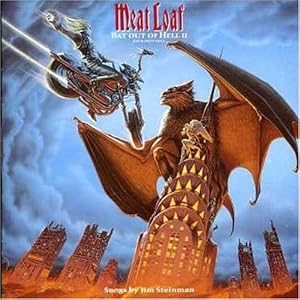 1. Cold
1. Cold2. Dare
3. Give It to You
4. Slave
5. In the Hands of God
6. Running Backwards
7. Life Without You
8. Everything
9. Fallen
10. The Weight of the World
11. I Don't Believe in Love 2013
12. Empire 2013
13. Jet City Woman 2013
14. Silent Lucidity 2013
Not the F.U. we were hoping for – 6,8/10
When it comes to Geoff Tate and the credibility of his more recent albums, I think it’s fair to say he has become an acquired taste. Who once sung glorious melodies in equally glorious compositions in the early years of Queensrÿche has undergone multiple changes. Changes are good. Never stay the same. However, changes have to be for the good. Tate lost a lot of his vocal range and, more recently, lost his manners. Now I shall do my best not to refer to his shameless attitude that has polluted online media the last year, but it is becoming harder and harder to like this chap. But when you take away the attitude, take away the rushed context, the inferior production, the legacy of Queensrÿche… Basically, when you look upon the album as if brand new, would we still hate it as much?
I will admit, I’ve always loved Geoff Tate. In times where albums like American Soldier or Dedicated to Chaos were mercilessly burned to the ground by critics, I managed to find things to love in a place where most wanted to puke. I took it for granted that would be the case with Frequency Unknown. Even though Tate has been kicked out of the band, he does manage to make his album sound like it could’ve been the next Queensrÿche record, had he not been kicked out, which is of course not a very plausible scenario. Yes, he has used these outside writers again, even though they are now inside, and yes, his voice has decayed just a little more since the previous effort. Millions of guest musicians play on this record including four drummers, three bassists, thousands of guitarists, but fortunately only one vocalist. Yet the music still sounds like Queensrÿche has sounded since Q2k, only slightly heavier.
Which brings us to the sound of the record. Tate desperately had to make a metal record. If the fanbase was leaving him because he wasn’t metal enough, he would just release a metal record, get everybody happy and go back to sleep, right? Unfortunately for him, that’s not the way it works. I rather enjoy hearing Tate doing what Tate does, but this is not what Tate does. This is what he comes up with when put under pressure and that is a shame. Yes, it’s heavy, but very grungy as well, treading the same territory the band had trodden on efforts like Tribe, Hear in the Now Frontier or Q2k. I will, however, not deny that “In the Hands of God” for instance reminds me heavily of Promised Land, and that “Life Without You” takes me back to 1990’s Empire, or even that “The Weight of the World” fits the list of classic album closers like “I Will Remember”, “Anybody’s Listening?” and “Big Noize”. So again, the album is not alienating fans at all, but merely raising their eyebrows regarding said context. Going back to these familiar sounds feels like a routine. Tate himself sounds a bit bored on occasion, and that is because he is used to challenging himself, but not here. Not on Frequency Unknown, where no new ground is trodden.
Lyrically, Tate exposes himself as a desperate man, who sees his world collapse around him, but who in response ignorantly raises a clenched fist and adopts this angry, tough guy attitude… like a child would. Every song can be interpreted to be about the ongoing lawsuits and chart battles… and the split. “Dare”, a simple song which any band has written before, but discarded because the idea seemed fun for just a few minutes, has clear lyrics without deep layers, like we are used to from Tate. “You won’t dare hurt me, for you just might get hurt yourself!” Yes, very profound indeed. “Slave” is a very powerful rocker with equally weak lyrics. Then there’s shallow lyrics like on “Cold”, “Life Without You” and “Everything,” which of course can be interpreted to be about the split as well, but with or without that connection they are not up to standards set by the lyrical content of albums like Rage for Order, Empire or even Dedicated to Chaos. A positive exception is the somewhat forced but successful epic “The Weight of the World,” where Tate openly reflects upon his future and where he genuinely weeps a little about the coming fall (pun intended).
Looking back on Frequency Unknown, it stirred up a little commotion due to its context and its pathetic cover art, but take away all of it and what you have is a pretty standard post-DeGarmo Queensrÿche album, even though I have a hard time seeing this as a genuine Queensrÿche record. Still, what we’re offered is pretty decent for fans of Tate’s post-DeGarmo mindset. It’s just not the F.U. we were hoping for.
Finest moments: “In the Hands of God”, “The Weight of the World” and “Slave”.
Worst moments: “Dare”, “Running Backwards”, all of the re-recordings.





